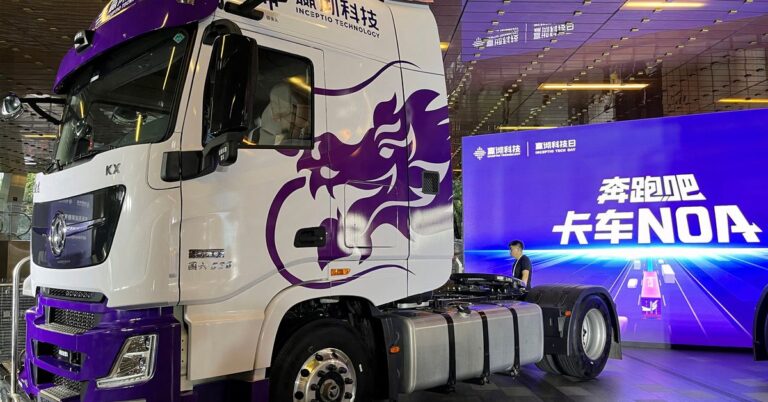[1/2]A Dongfeng truck equipped with an autonomous driving system developed by Inceptio will be exhibited at the Shanghai Center in Shanghai, China on August 29, 2023.REUTERS/Zoe Chan/File Photo Licensing Rights Acquisition
Oct 19 (Reuters) – China’s Dongfeng Motor Group (0489.HK) and Stellantis (STLAM.MI) said on Thursday the automakers would sell vehicles and parts through asset sales to better capture China’s fast-growing auto market. announced that it will expand its export business.
Under the asset transfer agreement, state-owned Dongfeng will purchase land use rights and buildings in Wuhan and Xiangyang from Dongfeng Peugeot Citroën Automobile Co., Ltd. (DPCA), a joint venture with Stellantis, for 1.71 billion yuan ($233.69 million). do.
Meanwhile, Stellantis has agreed with Dongfeng to continue producing Peugeot and Citroen cars at its Chinese factory, exporting Peugeot 4008 and Peugeot 5008 models to ASEAN countries and Citroen C5X models to Europe.
Stellantis said in a statement that the move to sell the DPCA plant to Dongfeng Motors underscores Stellantis’ “asset-light” strategy in China.
The company, which sees its future as a niche player in China, closed its Jeep-making joint venture with Guangzhou Automobile Group (GAC) last year after the brand’s sales slumped amid increased competition in the world’s biggest car market. .
It later said it was considering similar options for Peugeot and Citroën.
According to data from the China Automobile Manufacturers Association, the joint venture DPCA exported 37,000 cars (all internal combustion engine vehicles) from China in 2022, accounting for nearly 30% of total car sales that year.
DPCA said it is working on further projects to expand exports with the support of both shareholders.
Dongfeng said, “After the acquisition, the company (Dongfeng) and Stellantis will further deepen their cooperation and support DPCA’s continued production of existing Peugeot, Citroen and Fukang models.”
Dongfeng Motor said in a stock exchange filing that the acquisition will help integrate Dongfeng Motor’s internal new energy passenger vehicle business. (1 dollar = 7.3173 Chinese Yuan)
Reported by Himanshi Akhand and John Biju from Bangalore. Editing: Savio D’Souza, Shingini Ganguli, David Evans
Our standards: Thomson Reuters Trust Principles.
